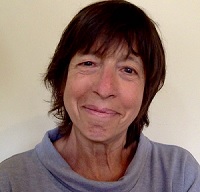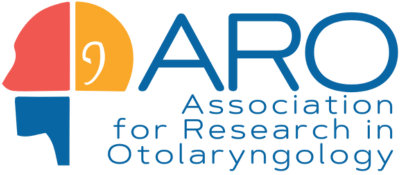Lynne Werner, PhD
 Lynne Ann Werner was born in Pittsburgh, Pennsylvania. The oldest of seven children, she describes her childhood as “unremarkable.” She received her bachelor’s degree from Northwestern University. Having sampled majors in biology, chemistry, education, and anthropology, she finally settled on psychology.
Lynne Ann Werner was born in Pittsburgh, Pennsylvania. The oldest of seven children, she describes her childhood as “unremarkable.” She received her bachelor’s degree from Northwestern University. Having sampled majors in biology, chemistry, education, and anthropology, she finally settled on psychology.
Following graduation, Lynne stayed in the Chicago area and began graduate school at Loyola University of Chicago, in the lab of Debbie Holmes, a developmental psychologist working mostly on visual perceptual development. In the Holmes lab she began her lifelong adventure toward discovering what human infants hear, completing a dissertation entitled “Auditory frequency analysis in infancy” in addition to several other papers on visual attention and a neurophysiology study on the goldfish 8th nerve with Richard Fay. Lynne then took a position as Assistant Professor of Psychology at Virginia Commonwealth University. Soon after that she was enticed to move her lab to the University of Virginia, and then in 1986 she moved to the University of Washington, where she rapidly rose to Full Professor with Tenure. She officially retired and became Professor Emeritus in 2017, but still continues to mentor junior scientists and to collaborate on research in other labs.
Early in her career, Lynne began running in her efforts to quit smoking. She ran her first marathon a year later and has since run nearly 200 marathons and ultramarathons. She no longer smokes. Lynne’s other interests include baseball, classical music and opera, theater, train travel, beer,
cooking, camping, and hiking. Lynne has been married to David Olsho for 48 years. David is also a runner. They have two daughters: Lauren Olsho is a health economist with a research focus on nutrition and risky behavior; Alexis Olsho is a researcher in physics education. Lynne and David have three grandchildren, Daisy, Sidney, and Willa, all of whom she describes as “sweet”, “smart,” and “good runners”.
When Lynne started her work on infant hearing in the 1980s, there were few quantitative behavioral data on young infants. There were careful observations of responses to a variety of acoustic stimuli, and there were studies based on the habituation of infant responses to sound that allowed researchers to determine whether infants could discriminate between two quite different sounds. However, these paradigms did not allow researchers to quantify infant sensitivity or to compare infants and adults directly. The conditioned head-turn procedure developed by researchers at the University of Washington was a great advance that
allowed for estimation of both detection and discrimination thresholds in the clinic as well as in the lab. Unfortunately, the conditioned head-turn technique does not yield reliable results for infants younger than about 6 months of age.
In 1987, Lynne and her colleagues introduced a major paradigm shift in the study of infant hearing, the Observerbased Psychophysical Procedure (OPP). This procedure combines the conditioned head-turn technique and the forced-choice preferential looking procedure, developed for infant vision studies by Davida Teller at University of Washington. This method actually tests the ability of a trained observer to detect a sound or a change in a sound using only the infant’s behavior as evidence. It is incredibly powerful and has allowed the collection of reliable psychophysical data on a large variety of acoustic parameters in normal-hearing and hearing-impaired infants as young as a few weeks old.
Armed with this new, powerful methodology, Lynne’s lab produced a series of remarkable studies that told us how infants detect, discriminate, or categorize acoustic stimuli. Among the important findings of her experiments, is that while some infant perceptual skills are surprisingly mature by 6 months of age (e.g., high frequency discrimination, low frequency resolution, and pitch categorization), other percepts remain immature, even as infants begin to acquire their first words (e.g., gap detection and spectral ripple discrimination). During this period, Lynne not only trained her students in OPP, but opened her lab to colleagues from the US and abroad who learned the OPP procedure and applied it to a variety of research questions. It is not an overstatement to say the research from Lynne’s lab is the pillar upon which Developmental Psychoacoustics is built.
Age-related improvements in auditory performance were sometimes attributed to failures of attention, memory, or general “efficiency”. While such effects were considered uninteresting to some hearing researchers, Lynne and the members of her lab demonstrated that such cognitive factors had a direct effect of infants’ perception. For example, one reason that infants are worse than adults at detecting a tone in noise is that while adults listen selectively for a particular frequency, infants listen broadly across frequency. One consequence is that infants are actually better than adults at detecting unexpected tones. The idea that listening strategy changes during infancy and childhood has broad implications for our understanding of the development of speech perception and for pediatric audiology.
Another facet of Lynne’s research contribution is her attempts to interpret her behavioral results in the context of our emerging understanding of the physiology and pharmacology of the auditory periphery and the brain. This is apparent in her early work, in her collaborations relating psychophysical measures to conductive, cochlear and brainstem measures in infants, and in her recent studies of hearing-impaired children. It is most apparent in her book entitled “Human Auditory Development” and in the many superb chapters she has authored and co-authored.
Lynne’s work has been widely recognized. Her R01 grant “Development of Frequency Resolution” was continuously funded, first by NINCDS then by NIDCD, from 1985 to 2018. She was elected a Fellow of the Acoustical Society of America in 2002. Since arriving at the University of Washington she has served as the research advisor to 26 graduate students and postdoctoral fellows. She was recognized as Outstanding Mentor by the Student Council of the Acoustical Society in 2018.
Finally, in order to understand what makes Lynne Werner an outstanding recipient of the 2020 ARO Award of Merit, it is important to understand her commitment to her colleagues and the fields of Auditory Science. She served on or chaired more than 30 university and national committees and was principal investigator on conference grants, core grants, and a training grant. While this shows her commitment and leadership outside the lab, her commitment to her colleagues has always been a top priority. We have never seen her turn down a request to help with a grant or a paper, or provide advice, or attend a practice talk. Every letter for this nomination stressed Lynne’s commitment as a mentor and colleague and her leadership as a role model for women in science. Her students and colleagues are thrilled that Lynne Ann Werner is receiving the Award of Merit from the Association for Research in Otolaryngology.
